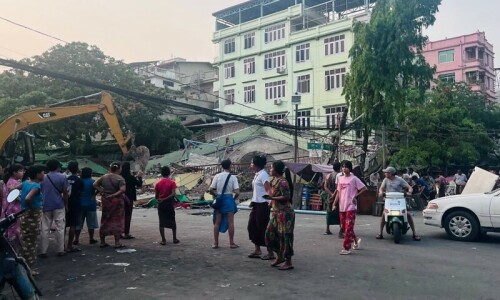SPURIOUS drugs pose a significant threat to public health in Pakistan. Statistics indicate that 85 per cent of medicines sold are either substandard or counterfeit. Recent findings from the Drug Regulatory Authority of Pakistan (Drap) revealed that over 50pc of life-saving medication samples tested were fake, including critical drugs used in treating mental illnesses and infections.
Authorities have identified several life-saving drugs as spurious. These drugs often contain non-active substances, like chalk or starch, instead of the intended active ingredients.
Drap has increased market surveillance, but faces challenges due to widespread corruption and inadequate enforcement. Reports indicate that many offenders remain unpunished despite numerous violations. The government should imp-lement stricter regulations and penalties for those involved in the production and distribution of counterfeit drugs.
Healthcare professionals have been advocating in favour of introducing severe legal consequences, potentially including charges of premeditated murder for those whose actions lead to patient harm. The government must actively consider such initiatives.
Pakistan has been seeking assistance from international entities to improve drug regulation, quality control, and post-marketing surveillance.
The introduction of barcodes on drug packaging has been mandated to help verify authenticity and track pharma-ceutical prodcuts across the supply chain.
Moreover, educating consumers about purchasing medications from reputable pharmacies can reduce reliance on unverified sources.
The menace of spurious drugs requires urgent attention. Enhanced regulatory frameworks, international collaboration, and public education may help restore people’s trust in the healthcare system.
Dr Pervez Ahmed Shar
Khairpur Mirs
Published in Dawn, March 25th, 2025













































